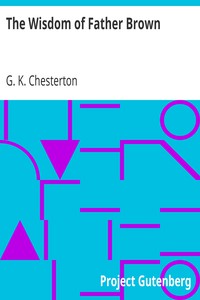Books author - "G. K. Chesterton"

Description Orthodoxy is G. K. Chesterton’s response to his critics’ assertion that his earlier collection of essays, Heretics , had “merely criticised current philosophies without offering any alternative philosophy.” In his intellectual journey from pagan to agnostic to positivist philosopher, he had attempted to build a philosophy “some ten minutes in advance of the truth.” But when he compared his modern philosophy with Christian theology, he realized that he was “the man who with the

Description G.K. Chesterton was an English writer, journalist, philosopher, poet and lay theologian. He delighted in standing conventional wisdom on its head in order to expose what he considered to be the lack of substance in the “vague modern.” In Heretics, he touches on a range of topics, including social Darwinism, eugenics, nihilism and atheism, while enumerating the flaws he finds in the work of his intellectual contemporaries such as Rudyard Kipling, Friedrich Nietzsche, George Bernard

Description Charles Swinburne and his friend, the private detective Rupert Grant, are startled when Major Brown recounts the things that happened to him that morning. Along with Rupert’s brother, the ex-judge Basil Grant, they launch headlong into their investigation only to discover that the antagonist is a member of the Club of Queer Trades. Over the course of six short stories, the secrets of the Club come to light in surprising ways. The Club of Queer Trades was one of G. K. Chesterton’s

Description Father Brown, G. K. Chesterton’s crime-solving Catholic priest, is back in this second collection of Father Brown short stories. In this collection, Brown is joined by his sidekick, the former arch-criminal Flambeau. Brown is directly involved in the investigations less frequently than in The Innocence of Father Brown , and several of the stories don’t even feature murder. Despite this, the shorts each feature Brown solving a mystery using his characteristic insight into human

